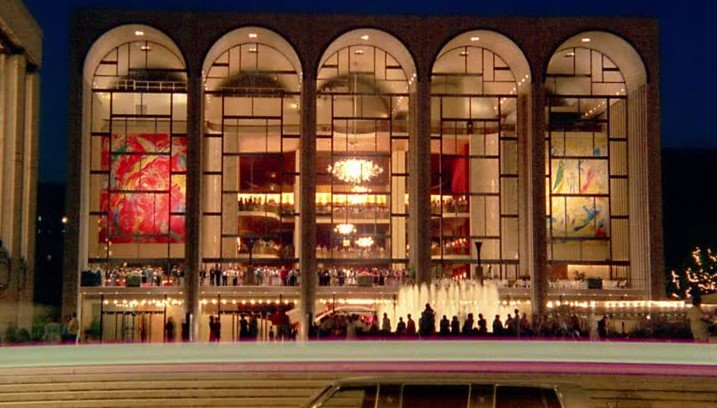The Metropolitan Opera, one of the world’s leading opera companies, has signed a major agreement with Saudi Arabia’s Music Commission and the Royal Diriyah Opera House. This deal, announced in early September 2025, will make the Met the resident winter company at the new opera house in Riyadh starting in 2028, amid ongoing financial struggles and sharp criticism over Saudi human rights issues.
Details of the New Partnership
The agreement spans five years and involves the Met traveling to Riyadh each winter for three-week periods. During these visits, the company will stage full operas and concerts, bringing high-profile productions to Saudi audiences for the first time.
This collaboration extends beyond performances. The Met will offer training programs for Saudi artists, including singers, composers, directors, and technicians. Plans also include commissioning a new opera to foster cultural ties.
Key elements of the deal include:
- Annual performances of classic works like Mozart’s The Magic Flute and Puccini’s La Bohème.
- Educational initiatives to build local talent in opera production.
- A focus on cultural exchange to connect global and Saudi arts communities.
Leaders from both sides praised the move. Saudi officials called it a step toward global creativity, while Met executives highlighted its role in supporting the institution.
The Royal Diriyah Opera House, set to open soon, represents Saudi Arabia’s push into international arts. This fits into broader efforts to diversify the economy and attract tourists through cultural projects.

Financial Boost for the Struggling Met
The Metropolitan Opera has faced severe money problems since the pandemic. It withdrew over $120 million from its endowment, leading to credit downgrades and operational cuts.
This Saudi deal promises more than $100 million over five years. Experts say it could cover a big chunk of the Met’s yearly budget, which stands at about $334 million.
Peter Gelb, the Met’s general manager, extended his contract through 2030 just as this agreement emerged. He described the partnership as vital for survival, allowing the company to avoid further endowment dips.
Recent events worsened the Met’s finances. A scam involving a fake millionaire forced emergency spending, highlighting the need for new revenue streams.
The deal aligns with Saudi investments in global entertainment. It could stabilize the Met, but some worry it prioritizes cash over ethics.
Peter Gelb’s Leadership and Justification
Peter Gelb has led the Met since 2006 and played a key role in this agreement. He argued that cultural exchanges promote understanding, even with controversial partners.
Gelb stated that many democratic governments do business with Saudi Arabia. He stressed putting the Met’s future first, despite personal views on global issues.
His stance contrasts with past actions. Gelb cut ties with Russian artists supporting Putin after the 2022 Ukraine invasion, showing strong support for human rights there.
Now, with Saudi Arabia buying Russian fuel and leading OPEC+ with Russia, critics question Gelb’s consistency. He maintains that the deal focuses on arts, not politics.
Gelb’s contract extension signals board confidence. It comes as the Met explores new ways to engage audiences worldwide.
The American Guild of Musical Artists backed the deal. They see it as a path to long-term stability for performers and the opera form.
Human Rights Concerns Spark Backlash
Saudi Arabia faces global criticism for human rights abuses. These include arbitrary arrests of activists, labor exploitation, and harsh laws against the LGBT community.
Women still encounter discrimination, despite some reforms. The death penalty remains a tool for punishing dissent, drawing outrage from rights groups.
This deal has ignited debate in the arts world. Activists argue it whitewashes Saudi issues, similar to past controversies with European companies.
In 2019, Italy’s La Scala rejected Saudi funding after public outcry. Artists worried about associating with a regime known for suppressing free expression.
Social media buzzed with reactions in September 2025. Many posts highlighted the irony of the Met’s Ukraine support versus this partnership.
Critics fear it sets a bad precedent. They call for boycotts, urging the Met to seek ethical funding sources instead.
Comparisons to Other Cultural Deals
Saudi Arabia has pursued arts partnerships to boost its image. Deals with film festivals and music events aim to modernize the kingdom’s reputation.
The Met’s move mirrors sports investments, like Saudi backing of golf and soccer leagues. These often face “sportswashing” accusations.
Here’s a quick look at similar cultural agreements:
| Organization | Partner | Year | Key Outcome |
|---|---|---|---|
| La Scala Opera | Saudi Arabia | 2019 | Deal canceled due to backlash; funds returned |
| Louvre Museum | Abu Dhabi (UAE) | 2007 | Successful branch opened; cultural exchange boosted |
| British Museum | Various Gulf states | Ongoing | Exhibitions funded; mixed reactions on ethics |
| Metropolitan Opera | Saudi Arabia | 2025 | Five-year residency; financial aid promised |
These cases show mixed results. Some succeed in cultural growth, while others collapse under pressure.
The Met’s deal could inspire more U.S. institutions to partner abroad. Yet, it risks damaging reputations if human rights issues persist.
Recent events, like Saudi’s role in global energy amid 2025 oil price fluctuations, add layers to the controversy. The kingdom’s ties with Russia complicate the narrative for supporters of Ukraine.
Industry Reactions and Future Outlook
Opera leaders have mixed views on the deal. Some praise it for saving jobs and preserving art, while others condemn it as morally flawed.
Unions like the American Guild of Musical Artists support it for financial security. They note it could help artists thrive in tough times.
Public sentiment on social platforms leans critical. Posts from September 2025 question the Met’s values, especially given Gelb’s anti-Russia stance.
Looking ahead, the deal starts in 2028. It might expand if successful, but ongoing scrutiny could force changes.
The Met plans more international tours to diversify income. This Saudi partnership could model future efforts, balancing art and finance.
What do you think about this deal? Share your thoughts in the comments and spread the word to keep the conversation going.
